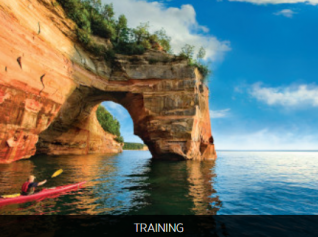Four easy steps for SEO

Tom Mcloughlin, founder of SEO Travel, shares four easy SEO actions you can implement right now to improve your search performance.
People are often outfaced by SEO because of the technical jargon and sheer volume of different activities they feel they have to deal with to be successful. But it’s actually possible to make big strides forward in performance just by getting a few simple actions in place for your site that follow best practice and are fairly easy to understand and implement.
Work through the points below, and within 60 days you’ll definitely see better SEO performance with your site:
Title Tags
Title tags remain the most influential on-page ranking factor, so it’s crucial you get them right. Most people make the mistake of updating their homepage title tag and a few other pages and stopping there. Don’t be one of those people! Every page on your site has ranking potential so keep working through pages deeper in your website and ensure they all have optimised title tags targeting relevant phrases and are working hard for you. Key rules to follow are:
keep them within 65 characters where possible
include your key target phrase within the tag somewhere
make sure it reads well so that people will click on it in the search results
Internal Linking
Google uses internal links as one signal to view how important different pages are on your site. A page that is only linked to once on other pages of your site, compared to one that is linked to 100 times, will not be viewed as important. Make sure that you are linking to your most important pages from lots of other pages on your site. This could be blog posts, information guides or more specific pages within the hierarchy (e.g. region pages linking to country pages). You should also try to use link text that reflects the phrases you want those pages to rank for. For example, if you have a Spain destination page, you should link to it with ‘Spain holidays’ and similar variations.
Indexing
An easily overlooked factor is the pages that Google indexes from your website. Do a site search in Google (site:domainname.com) and see what pages it shows to ensure they are all proper pages you would want users to find. If you have hundreds of low quality pages that are auto generated by your website behind the scenes this will harm the performance of your genuine pages. This is a common problem for websites on WordPress, which have endless ‘tag’ and ‘category’ pages indexed that offer no value at all. Pages like this should have a ‘noindex’ tag added, so Google and other search engines don’t take them into account when judging the quality of your website. Once that’s done, your genuine pages should flourish.
Content
A time consuming task, but one that can bring almost instant gains. Adding more pages to your site, that are well-targeted and feature good content, will almost always result in more traffic and better ranking performance. If you have a website which only has pages for the countries you cover (e.g. Spain) but not for places within that country (e.g. Barcelona) then you are missing out on people searching for those more specific place. Likewise, if you don’t have pages catering to the types of holidays people want to go on you are also missing out (e.g. beach holidays in Spain). Then you have informational content that you can add to a blog section which targets people higher in the buying funnel (e.g. things to do in Spain) which will also drive more visits and gain more visibility for your brand. If you create new pages on your site for these kind of topics, and you make sure they are in-depth and offer really useful information for users, then your SEO performance will undoubtedly improve. You’ll also be creating more places for internal linking as advised above 😉
Don’t let yourself get drowned in the technical humdrum of SEO advice. If you’re feeling overwhelmed, just focus on the four points above and you’ll make a great start on improving your website’s visibility in search.
* Tom Mcloughlin is the founder of SEO Travel, a specialist travel marketing agency based in the UK. He will soon be launching a live case study which people can follow in real time as he takes a brand new website to search success, sharing all the tips and secrets along the way. Sign up here to follow the journey.
Bev
Editor in chief Bev Fearis has been a travel journalist for 25 years. She started her career at Travel Weekly, where she became deputy news editor, before joining Business Traveller as deputy editor and launching the magazine’s website. She has also written travel features, news and expert comment for the Guardian, Observer, Times, Telegraph, Boundless and other consumer titles and was named one of the top 50 UK travel journalists by the Press Gazette.
 United Kingdom
United Kingdom United States
United States Asia Pacific
Asia Pacific












































EU airports bring back 100ml liquid rule
CLIA: Anti-cruise demos could cause itinerary changes in Europe
Co-pilot faints, easyJet flight issues ‘red alert’
Dozens fall ill in P&O Cruises ship outbreak
Woman dies after getting ‘entangled’ in baggage carousel